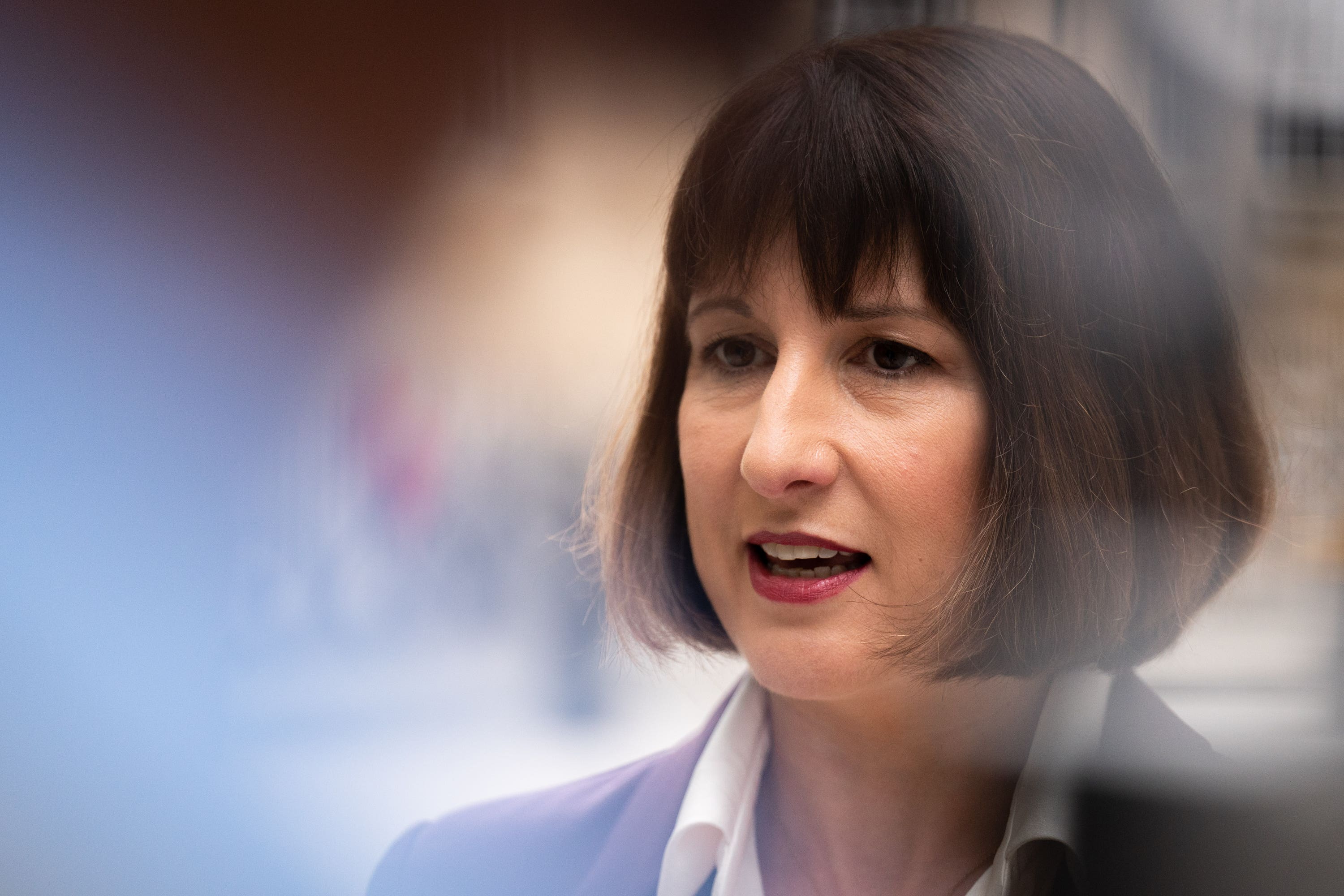Labour criticised for ‘shameful’ dropping of wealth tax
Rachel Reeves said a Labour government would not introduce higher levies on property, capital gains and top earners.

Your support helps us to tell the story
From reproductive rights to climate change to Big Tech, The Independent is on the ground when the story is developing. Whether it's investigating the financials of Elon Musk's pro-Trump PAC or producing our latest documentary, 'The A Word', which shines a light on the American women fighting for reproductive rights, we know how important it is to parse out the facts from the messaging.
At such a critical moment in US history, we need reporters on the ground. Your donation allows us to keep sending journalists to speak to both sides of the story.
The Independent is trusted by Americans across the entire political spectrum. And unlike many other quality news outlets, we choose not to lock Americans out of our reporting and analysis with paywalls. We believe quality journalism should be available to everyone, paid for by those who can afford it.
Your support makes all the difference.Labour has been criticised for its “shameful” move to rule out a wealth tax if it wins the next election.
Shadow chancellor Rachel Reeves said a Labour government would not introduce a mansion tax on expensive properties or raise capital gains tax.
She also confirmed that Sir Keir Starmer’s leadership pledge to increase the 45p top rate of income tax is off the table, as the Labour leader had previously indicated.
It comes as the party steps up its efforts to demonstrate economic responsibility ahead of a likely general election next year.
This is a political choice to favour big business & the 1% over ordinary people
But the move prompted a backlash from Labour’s left, many of whom have urged the leadership to use wealth taxes to raise money from the super-rich.
Left-wing pressure group Momentum said on X, formerly known as Twitter: “Four people in this country have more wealth than *20 million Britons*.
“Meanwhile, capital gains are taxed lower than income.
“This is a political choice to favour big business & the 1% over ordinary people. Shameful.”
Dropping its support for any version of a wealth tax is designed to blunt Tory attacks, with Labour figures concerned that the possibility of tax hikes or unfunded spending pledges would be used to paint the party as economically incompetent.
Confirming the decision, Ms Reeves told The Telegraph: “I don’t see a route towards having more money for public services that is through taxing our way there.
“It is going to be through growing our way there. And that’s why the policies that we’ve set out are all about how we can encourage businesses, big and small, to invest in Britain.”
She also told the newspaper her preparations for office include “spending an awful lot of time with businesses”.
A Conservative Party spokesman said: “Rachel Reeves is yet again taking the British people for fools if she thinks they will believe this latest U-turn.
“Labour’s reckless spending and £28 billion-a-year borrowing plan would crash the economy, fuel inflation, and inevitably result in higher taxes for the British people. As ever with Labour, hardworking people would be forced to foot the bill for their disastrous economic policies.
“We are getting on with delivering on the people’s priorities: halve inflation, grow the economy, reduce debt, cut waiting lists, and stop the boats.”
Labour has doubled down on its efforts to woo business chiefs, attracting a surge of interest from business at its annual conference in October.
The Opposition, which continues to ride high in the polls, said its latest figures show the number of attendees at its business forum has risen by 50% in a year.
It is described as the “flagship engagement event for business” at the four-day gathering in Liverpool.
The website for the event states there are no more tickets available, and Labour said on top of the 200 people already signed up, a further 150 are on the waiting list.
Sir Keir is expected to use this year’s conference to set out how a government led by him will revive a sluggish economy, with planning reforms central to the party’s bid to build its way back to economic growth.
It will take place on October 8-11, following the Conservatives’ conference to be held in Manchester on October 1-4.